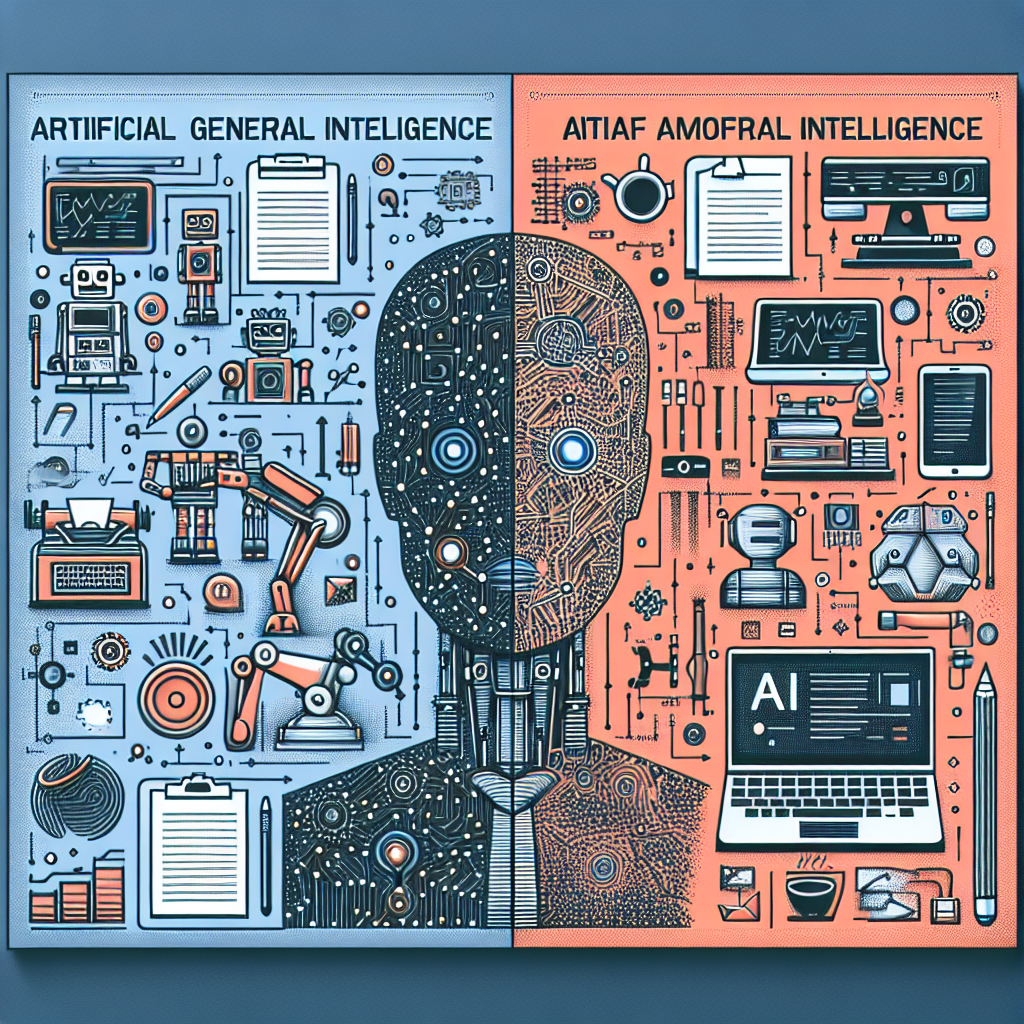Artificial General Intelligence (AGI) is a term used to describe a type of artificial intelligence that can understand, learn, and apply knowledge in a broad range of tasks, similar to human intelligence. While current AI technologies are limited in scope and typically focus on specific tasks, AGI has the potential to revolutionize the workforce and reshape the landscape of work and employment.
AGI has been a topic of interest and speculation for many years, with experts predicting that it will eventually surpass human intelligence in all areas. This has led to both excitement and concern about the impact that AGI will have on society, particularly in terms of employment and the workforce. In this article, we will explore how AGI is reshaping the landscape of work and employment, and address some frequently asked questions about the topic.
The Impact of AGI on the Workforce
AGI has the potential to automate a wide range of tasks and jobs that are currently performed by humans. This includes tasks that require cognitive abilities such as problem-solving, decision-making, and creativity. As AGI becomes more advanced, it is likely to take over many of these tasks, leading to significant changes in the workforce.
One of the most immediate impacts of AGI on the workforce is likely to be the automation of routine and repetitive tasks. Jobs that involve performing the same tasks over and over again, such as data entry or assembly line work, are prime candidates for automation by AGI. This could lead to job losses in these sectors, as companies look to increase efficiency and reduce costs by replacing human workers with AGI systems.
However, the impact of AGI on the workforce is not limited to routine tasks. AGI has the potential to disrupt a wide range of industries and professions, including those that require high levels of skill and expertise. For example, AGI systems are already being used to analyze medical imaging scans and assist doctors in diagnosing diseases. As AGI becomes more advanced, it could potentially replace human doctors in some areas of medicine, leading to a shift in the way healthcare is delivered.
AGI is also likely to create new job opportunities in sectors that require human skills such as creativity, emotional intelligence, and social interaction. While AGI may be able to perform many tasks more efficiently than humans, there are certain tasks that require a human touch. For example, jobs in the creative industries, such as writing, art, and music, are likely to be less affected by automation, as they rely on human creativity and originality.
Overall, the impact of AGI on the workforce is likely to be complex and multifaceted. While some jobs may be replaced by AGI systems, new opportunities are also likely to emerge as companies adapt to the changing landscape of work and employment.
Frequently Asked Questions about AGI and Work
Q: Will AGI replace all human jobs?
A: While AGI has the potential to automate a wide range of tasks and jobs, it is unlikely to replace all human jobs. There are certain tasks that require human skills such as creativity, emotional intelligence, and social interaction, which AGI systems are unable to replicate.
Q: Will AGI lead to widespread unemployment?
A: While AGI is likely to lead to job losses in certain sectors, it is also likely to create new job opportunities in other areas. Companies will need to adapt to the changing landscape of work and employment, and may need to retrain and reskill their workforce to take advantage of new opportunities.
Q: How can individuals prepare for the impact of AGI on the workforce?
A: To prepare for the impact of AGI on the workforce, individuals can focus on developing skills that are less likely to be automated by AGI systems, such as creativity, emotional intelligence, and social interaction. Lifelong learning and continuous upskilling will also be important to adapt to the changing demands of the workforce.
Q: What are the ethical implications of AGI in the workplace?
A: The use of AGI in the workplace raises a number of ethical concerns, including issues related to job displacement, privacy, and bias. Companies will need to address these concerns and ensure that AGI systems are used in a responsible and ethical manner.
Q: How can policymakers respond to the impact of AGI on the workforce?
A: Policymakers can respond to the impact of AGI on the workforce by implementing policies that support workers who are affected by automation, such as retraining programs and job transition assistance. They can also work with industry stakeholders to develop ethical guidelines for the use of AGI in the workplace.
In conclusion, AGI has the potential to reshape the landscape of work and employment in profound ways. While the impact of AGI on the workforce is likely to be complex and multifaceted, there are opportunities for individuals and companies to adapt and thrive in this new era of artificial intelligence. By understanding the potential impact of AGI on the workforce and taking proactive steps to prepare for the future, we can ensure that the benefits of AGI are realized while mitigating any potential risks.

